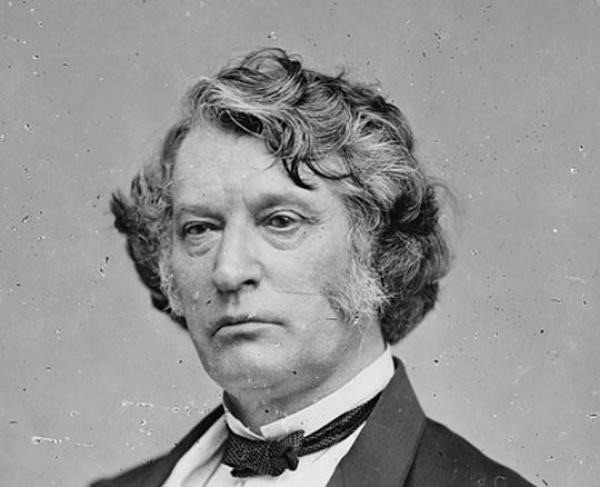|
Charles Sumner (1811-1874) was an American politician and statesman who played a key role in the anti-slavery movement and the fight for civil rights during the 19th century. Born in Boston, Sumner was well-educated and studied law at Harvard University. He became involved in politics in the 1840s and was elected to the United States Senate from Massachusetts in 1851. As a senator, Sumner became known as one of the leading opponents of slavery in the United States. Sumner was an eloquent speaker and writer, and he used his platform in the Senate to denounce slavery and to call for its abolition. He was a strong supporter of the anti-slavery movement and worked closely with other abolitionists, including Frederick Douglass. In 1856, Sumner gave a famous speech on the Senate floor in which he denounced the pro-slavery forces in Kansas and attacked several pro-slavery senators by name. One of these senators, Preston Brooks of South Carolina, took offense to Sumner's speech and attacked him with a cane, leaving him severely injured. Despite the physical and emotional toll of the attack, Sumner continued to be a vocal advocate for the abolition of slavery and civil rights for all Americans. He was a key supporter of the Emancipation Proclamation and the Thirteenth Amendment to the Constitution, which abolished slavery throughout the United States. After the Civil War, Sumner became involved in the fight for civil rights for African Americans. He supported the Fifteenth Amendment, which granted African American men the right to vote, and he spoke out against efforts to limit their political power and civil rights. Sumner was also a strong advocate for international peace and human rights. He was a key supporter of the Geneva Convention and worked to establish an international arbitration system to resolve disputes between nations. Despite his many accomplishments, Sumner faced criticism and opposition throughout his career. He was often criticized for his outspoken views on slavery and civil rights, and he faced political challenges from both Democrats and conservative Republicans.
|
